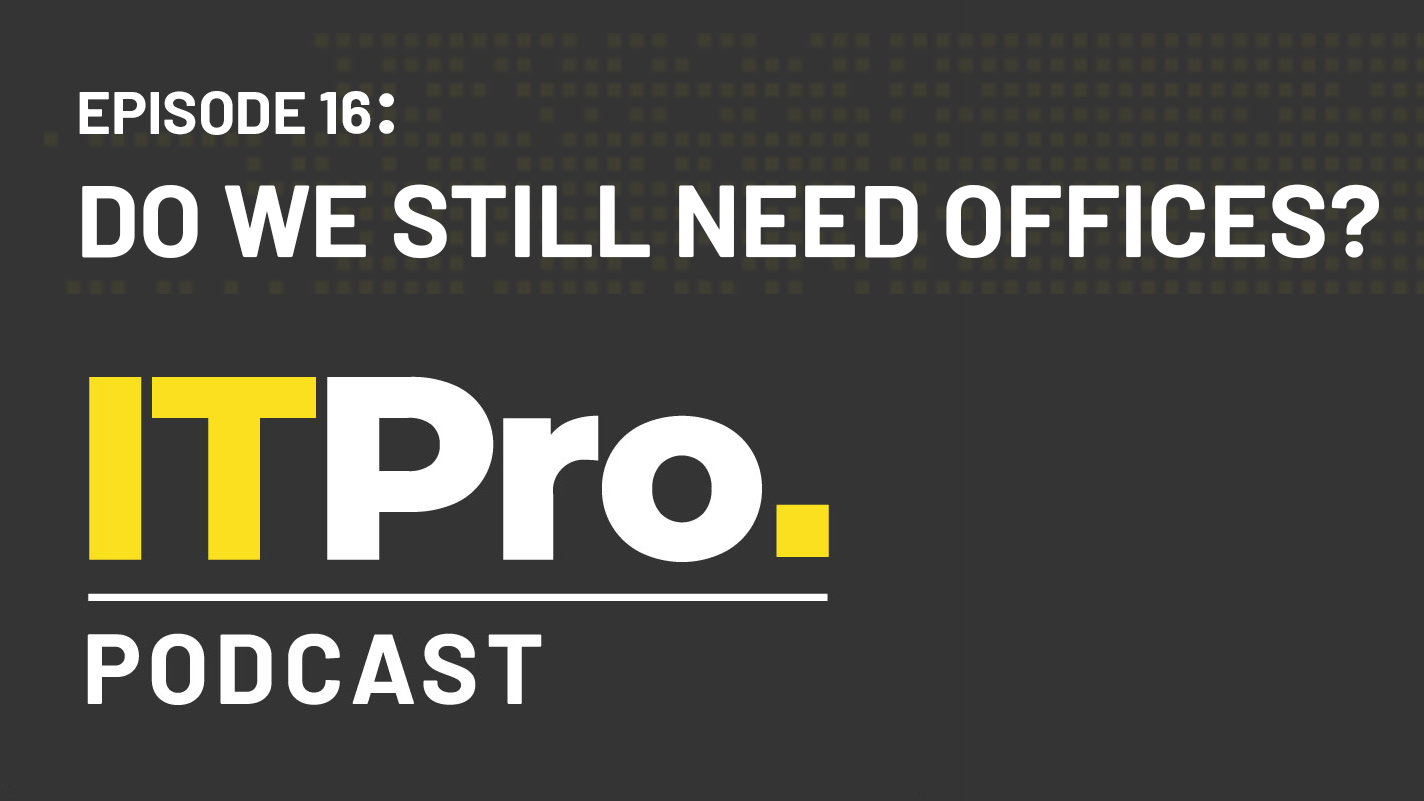How coronavirus will reshape the IT industry forever
An unprecedented experiment in remote working has permanently changed business thinking


For many businesses, the coronavirus crisis has been a question of disruption, but for others it has been about survival, with workplaces no longer safe for employees and consumer demand collapsing. The tech industry, however, has perhaps fared better than most, given many organisations are already set-up for remote working.
Casting an eye to the future, it’s clear we can’t simply pick up where we left off. As the industry begins to emerge from the pandemic, boardrooms will be asking fundamental questions about the nature of work and office culture. There’s no doubting that the crisis will render lasting effects, and the IT industry will be no stranger to these tides. From permanent remote working to radical shifts in investment, we’re now starting to see these shifts play out.
Remote working is here to stay
Although the pandemic is still very much ongoing, tech firms have begun restructuring their offices on a more long-term basis, with more remote working at the heart of these strategies. Twitter, for example, in May told its employees that they could choose to work from home forever. This came days after Facebook and Google both confirmed they would continue to allow employees to work from home throughout the rest of 2020.
To say working from home will become the new normal, however, would be too simplistic. While many will expect a more flexible and digitally-oriented workplace, there are others for whom remote working won’t suit; the vibrancy of office culture is one of the elements many workers would deem critical to maintaining morale. Nevertheless, workplaces will need to respond to the changing landscape, Forrester VP and research director Martin Gill tells IT Pro, or risk being left behind in the labour market.
“About half of firms have the tools and technology they need now to support effective remote working, and while many employees in crisis are reporting productivity dips, an overwhelming majority want remote working, or at least flexible working in some form, to remain long term,” he says.
“Firms must respond. If they can’t provide the kind of modern, forward-looking employee experience workers expect, they will lose talent to those firms that can. This will be compounded by the erosion of geographical constraints on the workforce. A company that unlocks the potential of remote working can recruit talent from anywhere in the world.”
Maintaining engagement in a disconnected world
Like Facebook, OpenText has decided to close half its offices across the US, affecting 15% of its employees. In addition, many positions will be advertised as remote working-only in future. Gareth Hutchins, manager of solution architects and experts with OpenText, says this hybrid model will provide employees with greater flexibility, which workers have long-craved. The company announced these changes after the ‘experiment at scale’ led executives to realise that productivity didn’t suffer, and even went up in some instances.
Sign up today and you will receive a free copy of our Future Focus 2025 report - the leading guidance on AI, cybersecurity and other IT challenges as per 700+ senior executives
Such a move, however, may lead to a permanent divide where remote workers could feel chronically less engaged than those who are asked to travel into offices. OpenText has taken several steps to ensure its remote workers, currently 95% of the workforce, continue to remain engaged, with further measures in the works.
“Our employees have risen to the challenge and stay connected through daily stand-up calls, virtual coffee breaks and virtual ‘happy hours’ on Friday afternoons – these interactions help them to feel valued and part of a collaborative, global team,” Hutchins tells IT Pro. This is in addition to the use of investments in digital systems to ensure people feel as connected as possible while they are apart, with these tools being used now more than ever.
RELATED RESOURCE

The IT Pro Podcast: Do we still need offices?
Have cloud software and collaboration tools rendered physical workplaces obsolete?
“For example, we’re more reliant on our Core Capture capabilities to automate information flow throughout the organisation – across different departments and borders – to further enhance employee productivity. For now the biggest change will be that people are not in the same physical space. As such, we are encouraging employees to use virtual gatherings as much as possible to stay connected.”
Staying grounded
With the social and business landscape becoming more remote, one of the unfortunate consequences has been a collapse in demand for global travel, due to (entirely reasonable) fears of spreading or contracting COVID-19. Given that it’s impossible to predict when, or if, business travel will return to pre-crisis levels, organisations have increasingly been buying into the idea of using digital systems to stay connected. In the coming months, and possibly even years, tours will be replaced with video meetings, while conferences will be hosted online as virtual events, rather than in-person gatherings.
In cases where this has already happened, it has been met largely with success. Facebook F8 and Google I/O, for example, in addition to Microsoft Build 2020, were scrapped and hosted digitally instead. Microsoft has even gone a step further, saying all its major events will be online-only until at least July 2021, meaning Ignite 2020 and Build 2021 will also be hosted digitally. It’s inevitable that swathes of other tech companies will follow suit and feed into a ‘new normal’ where the majority of events will be hosted digitally, at least until a vaccine is manufactured and distributed at scale.
Reimagining our culture
While it’s true to say the pandemic will change the way businesses operate, much of this will be driven by changes in customer behaviour and values. Coronavirus has driven consumers to rethink what they value, Forrester’s Martin Gill explains, with this in turn translating into changes in work attitudes and business culture. The need to cater to a changing landscape may then inspire executives to alter their approach to investment.
The immediate challenge for many businesses is not how to capitalise on the current situation, but how to survive it. For many organisations, cost-cutting measures will involve deferring or cancelling previously planned capital expenditure investment, according to PwC research from May. Regardless, the majority of CFOs are making plans centred on reimagining the workplace, with 76% considering workplace safety measures and requirements such as masks or testing. This is alongside half of CFOs planning to invest in making remote working a permanent option, and half planning to accelerate automation and new ways of working, as soon as their companies begin the transition to on-site working.
Gill agrees, adding that the speed and scale of response the pandemic has demanded highlights the need for enterprises to become adaptive. The process, when it reaches its logical conclusion, could result in a business landscape in many ways unrecognisable from the one we occupied pre-pandemic.
“This means pace and agility, flexibility as to how and where people work, and resilience of systems, processes and people,” he continues. “This leads to investment in cloud-based systems, digital collaboration tools, and oft-overlooked cybersecurity.
“Remote working will allow firms to relocate out of major commercial hubs, reducing their property overheads. This could mean no offices for some bold firms, or for others it means a reduced office footprint, with potentially more local collaboration hubs to bring teams together as needed, rather than by default.”

Keumars Afifi-Sabet is a writer and editor that specialises in public sector, cyber security, and cloud computing. He first joined ITPro as a staff writer in April 2018 and eventually became its Features Editor. Although a regular contributor to other tech sites in the past, these days you will find Keumars on LiveScience, where he runs its Technology section.
-
 What is Microsoft Maia?
What is Microsoft Maia?Explainer Microsoft's in-house chip is planned to a core aspect of Microsoft Copilot and future Azure AI offerings
-
 If Satya Nadella wants us to take AI seriously, let’s forget about mass adoption and start with a return on investment for those already using it
If Satya Nadella wants us to take AI seriously, let’s forget about mass adoption and start with a return on investment for those already using itOpinion If Satya Nadella wants us to take AI seriously, let's start with ROI for businesses
-
 Infosys co-founder Narayana Murthy called for a 70 hour week last year — now he says that’s not enough
Infosys co-founder Narayana Murthy called for a 70 hour week last year — now he says that’s not enoughNews Murthy thinks longer hours akin to China’s '996' approach are the key to success
-
 Microsoft could be preparing for a crackdown on remote work
Microsoft could be preparing for a crackdown on remote workNews The tech giant is the latest to implement stricter policies around hybrid working without requiring a full five days in the office
-
 IT professionals aren’t budging on flexible work demands – and more than half say they’ll quit if employers don’t meet expectations
IT professionals aren’t budging on flexible work demands – and more than half say they’ll quit if employers don’t meet expectationsNews Analysis from Randstad shows 40% of UK-based IT pros have quit over a lack of flexible work options, while 31% of workers globally have done the same.
-
 'The tide seems to be turning towards office attendance': 64% of hybrid business leaders want staff back in the office – but many worry that enforcing RTO mandates will drive employees away
'The tide seems to be turning towards office attendance': 64% of hybrid business leaders want staff back in the office – but many worry that enforcing RTO mandates will drive employees awayAnalysis Many UK business leaders want their staff back in the office more frequently, but they’re scared to implement return to office (RTO) mandates in fear of worker revolts.
-
 Employees are dead set on flexible working arrangements – three quarters would turn down a role that didn't offer hybrid options as work-life balance becomes more important than pay
Employees are dead set on flexible working arrangements – three quarters would turn down a role that didn't offer hybrid options as work-life balance becomes more important than payNews New research shows workers are increasingly demanding flexible working arrangements from employers.
-
 Nearly half of tech workers are seeking new roles – declining employee benefits and reduced flexible working options have staff looking elsewhere
Nearly half of tech workers are seeking new roles – declining employee benefits and reduced flexible working options have staff looking elsewhereNews While salaries are rising for tech workers, other benefits are in decline, leading to a fall in job satisfaction
-
 Untethered: How CIOs and CISOs are paving the way for the new hybrid workforce
Untethered: How CIOs and CISOs are paving the way for the new hybrid workforceWhitepaper Effective techniques to transition from exposed legacy infrastructure to an effective zero trust strategy
-
 Unified endpoint management and security in a work-from-anywhere world
Unified endpoint management and security in a work-from-anywhere worldWhitepaper Learn how to converge endpoint management and security processes and systems to drive efficiency and reduce risk